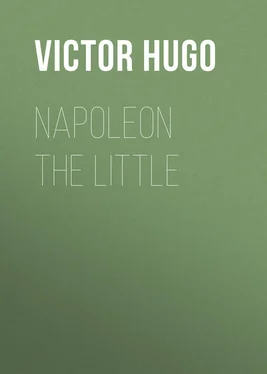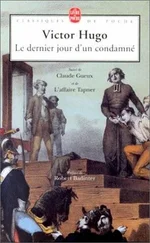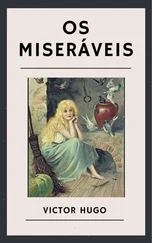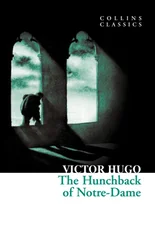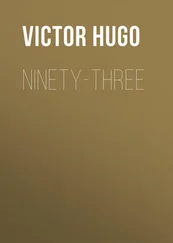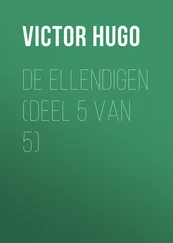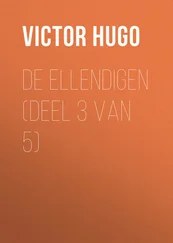Victor Hugo - Napoleon the Little
Здесь есть возможность читать онлайн «Victor Hugo - Napoleon the Little» — ознакомительный отрывок электронной книги совершенно бесплатно, а после прочтения отрывка купить полную версию. В некоторых случаях можно слушать аудио, скачать через торрент в формате fb2 и присутствует краткое содержание. Жанр: literature_19, foreign_antique, foreign_prose, на английском языке. Описание произведения, (предисловие) а так же отзывы посетителей доступны на портале библиотеки ЛибКат.
- Название:Napoleon the Little
- Автор:
- Жанр:
- Год:неизвестен
- ISBN:нет данных
- Рейтинг книги:3 / 5. Голосов: 1
-
Избранное:Добавить в избранное
- Отзывы:
-
Ваша оценка:
- 60
- 1
- 2
- 3
- 4
- 5
Napoleon the Little: краткое содержание, описание и аннотация
Предлагаем к чтению аннотацию, описание, краткое содержание или предисловие (зависит от того, что написал сам автор книги «Napoleon the Little»). Если вы не нашли необходимую информацию о книге — напишите в комментариях, мы постараемся отыскать её.
Napoleon the Little — читать онлайн ознакомительный отрывок
Ниже представлен текст книги, разбитый по страницам. Система сохранения места последней прочитанной страницы, позволяет с удобством читать онлайн бесплатно книгу «Napoleon the Little», без необходимости каждый раз заново искать на чём Вы остановились. Поставьте закладку, и сможете в любой момент перейти на страницу, на которой закончили чтение.
Интервал:
Закладка:
And this man is the nephew of the Emperor.
By the bye, this nephew is not proud: he accommodates himself, with great facility, to the necessities of his adventures; adapts himself readily and without reluctance, to every freak of destiny. Place him in London, and let it be his interest to please the English government, he would not hesitate, and with the very hand which now seeks to seize the sceptre of Charlemagne, he would grasp the truncheon of a policeman. If I were not Napoleon, I would be Vidocq.
And here thought pauses!
And such is the man by whom France is governed! governed, do I say? possessed rather in full sovereignty!
And every day, and every moment, by his decrees, by his messages, by his harangues, by all these unprecedented imbecilities which he parades in the Moniteur , this émigré , so ignorant of France, gives lessons to France! and this knave tells France that he has saved her! From whom? from herself. Before he came, Providence did nothing but absurdities; God waited for him to put everything in order; and at length he came. For the last thirty-six years poor France had been afflicted with all sorts of pernicious things: that "sonority," the tribune; that hubbub, the press; that insolence, thought; that crying abuse, liberty: he came, and for the tribune, he substituted the Senate; for the press, the censorship; for thought, imbecility; for liberty, the sabre; and by the sabre, the censorship, imbecility, and the Senate, France is saved! Saved! bravo! and from whom, I ask again? from herself. For what was France before, if you please? a horde of pillagers, robbers, Jacquerie, assassins, demagogues! It was necessary to put fetters on this abominable villain, this France, and it was M. Bonaparte Louis who applied the fetters. Now France is in prison, on bread and water, punished, humiliated, throttled and well guarded; be tranquil, everybody; Sieur Bonaparte, gendarme at the Élysée, answers for her to Europe; this miserable France is in her strait waistcoat, and if she stirs! —
Ah! what spectacle is this? What dream is this? What nightmare is this? On the one hand, a nation, first among nations, and on the other, a man, last among men – and see what that man does to that nation! God save the mark! He tramples her under foot, he laughs at her to her face, he flouts her, he denies her, he insults her, he scoffs at her! How now! He says, there is none but I! What! in this land of France where no man's ears may be boxed with impunity, one may box the ears of the whole people! Oh! abominable shame! Each time that M. Bonaparte spits, every one must needs wipe his face! And this can last! And you tell me that it will last! No! No! No! By all the blood we have in our veins, no! this shall not last. Were it to last, it must be that there is no God in heaven, or no longer a France on earth!
BOOK II
I
THE CONSTITUTION
A roll of the drums; clowns, attention!
"Considering that – all the restrictive laws on the liberty of the press having been repealed, all the laws against hand-bills and posting-bills having been abolished, the right of public assemblage having been fully re-established, all the unconstitutional laws, including martial law, having been suppressed, every citizen being empowered to say what he likes through every medium of publicity, whether newspaper, placard, or electoral meeting, all solemn engagements, especially the oath of the 20th of December, 1848, having been scrupulously kept, all facts having been investigated, all questions propounded and discussed, all candidacies publicly defeated, without the possibility of alleging that the slightest violence had been exercised against the meanest citizen, – in one word, in the fullest enjoyment of liberty. "The sovereign people being interrogated on this question: —
"'Do the French people mean to place themselves, tied neck and heels, at the discretion of M. Louis Bonaparte?'
"Have replied YES by 7,500,000 votes. ( Interruption by the author : – We shall have more to say of these 7,500,000 votes.)
"Article 1. The Constitution recognises, confirms, and guarantees the great principles proclaimed in 1789, which are the foundation of the public law of the French people.
"Article 2 and following. The platform and the press, which impeded the march of progress, are superseded by the police and the censorship, and by the secret deliberations of the Senate, the Corps Législatif and the Council of State.
"Article last. The thing commonly called human intelligence is suppressed.
"Done at the Palace of the Tuileries January 14, 1852.
"Louis Napoleon."Witnessed and sealed with the great seal.
"E. Rouher.
" Keeper of the Seals and Minister of Justice. "
This Constitution, which loudly proclaims and confirms the Revolution of 1789 in its principles and its consequences, and which merely abolishes liberty, was evidently and happily inspired in M. Bonaparte, by an old provincial play-bill which it is well to recall at this time:
Note. The music , which would embarrass the progress of the plot, will be replaced by lively and piquant dialogue .
II
THE SENATE
This lively and piquant dialogue is carried on by the Council of State, the Corps Législatif and the Senate.
Is there a Senate then? Certainly. This "great body," this "balancing power," this "supreme moderator," is in truth the principal glory of the Constitution. Let us consider it for a moment.
The Senate! It is a senate. But of what Senate are you speaking? Is it the Senate whose duty it was to deliberate on the description of sauce with which the Emperor should eat his turbot? Is it the Senate of which Napoleon thus spoke on April 5, 1814: "A sign was an order for the Senate, and it always did more than was required of it?" Is it the Senate of which Napoleon said in 1805: "The poltroons were afraid of displeasing me?" 17 17 Thibaudeau. History of the Consulate and the Empire.
Is it the Senate which drew from Tiberius almost the same exclamation: "The base wretches! greater slaves than we require them to be!" Is it the Senate which caused Charles XII to say: "Send my boot to Stockholm." – "For what purpose, Sire?" demanded his minister. – "To preside over the Senate," was the reply.
But let us not trifle. This year they are eighty; they will be one hundred and fifty next year. They monopolise to themselves, in full plenitude, fourteen articles of the Constitution, from Article 19 to Article 33. They are "guardians of the public liberties;" their functions are gratuitous by Article 22; consequently, they have from fifteen to thirty thousand francs per annum. They have the peculiar privilege of receiving their salary, and the prerogative of "not opposing" the promulgation of the laws. They are all illustrious personages." 18 18 "All the illustrious persons of the country." Louis Bonaparte's Appeal to the people . December 2, 1851.
This is not an "abortive Senate," 19 19 "The Senate was an abortion; and in France no one likes to see people well paid merely for making some bad selections." Words of Napoleon, Memorial from St. Helena .
like that of Napoleon the uncle; this is a genuine Senate; the marshals are members, and the cardinals and M. Lebœuf.
"What is your position in the country?" some one asks the Senate. "We are charged with the preservation of public liberty." – "What is your business in this city?" Pierrot demands of Harlequin. – "My business," replies Harlequin, "is to curry-comb the bronze horse."
Читать дальшеИнтервал:
Закладка:
Похожие книги на «Napoleon the Little»
Представляем Вашему вниманию похожие книги на «Napoleon the Little» списком для выбора. Мы отобрали схожую по названию и смыслу литературу в надежде предоставить читателям больше вариантов отыскать новые, интересные, ещё непрочитанные произведения.
Обсуждение, отзывы о книге «Napoleon the Little» и просто собственные мнения читателей. Оставьте ваши комментарии, напишите, что Вы думаете о произведении, его смысле или главных героях. Укажите что конкретно понравилось, а что нет, и почему Вы так считаете.
